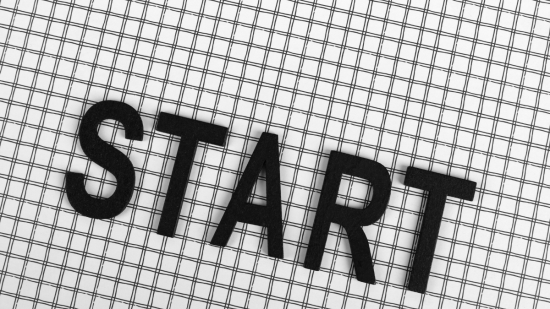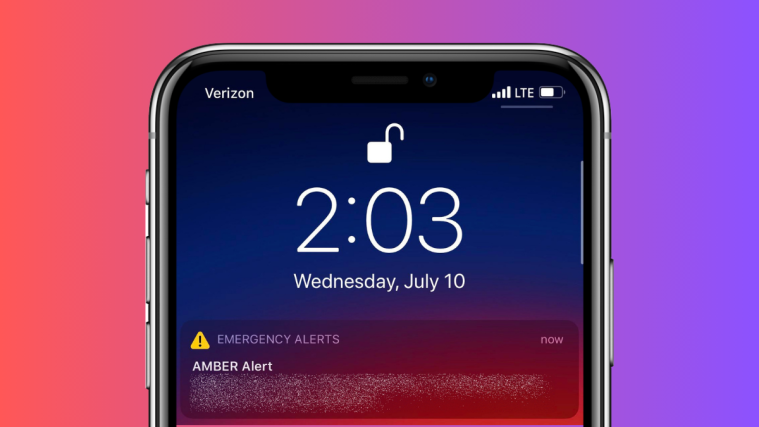Is Nerdle making you feel at sixes and sevens? It is probably because you’ve been starting the game wrong. Players of the Nerdle game running enduring streaks have been upfront with the tricks that ensure a guaranteed win for them. And we have assorted the highlights for you right here.
Is there a workable Nerdle strategy?
Nerdle the math game is an independent byproduct of Wordle, the word game. It is consequential that most players of the Wordle drift to Nerdle as an outcome of their pursuit of variety and heightened difficulty.
The advantage of graduating from the alma mater, Wordle, is that you have the fundamentals down and imbibed — so there is no necessity to learn or unlearn any rules. This also applies to the strategies. Wordle strategies have become an almost exhausted field of research with seasoned players having already unveiled the best ways to start your game, make the consecutive guesses and tackle the mystery word with more chances to spare than used.
Thankfully, Nerdle also has a set of applicable and strikingly similar strategies that could expedite the process of elimination and optimize your winning odds. Of course, it all largely relies on how you use your numbers and operators in the first few moves.
Related: Nerdle Archive: How to Play Old Nerdle Games
Strategy to solve Nerdle in fewer guesses
As a preface to understanding Nerdle strategies, it is important to evoke your go-to Wordle strategies. Are you a vowel person, or do you favor consonants? Maybe you like to keep it balanced? Your preference in the word game might echo in the math game — let’s find out how.
In Nerdle and miniNerdle, each of our guesses should fill out 8 or 6 blank grey tiles respectively. You have at your disposal a set of digits (0,1,2,3,4,5,6,7,8,9), a set of operators (+,-,*,/), and the symbol “=”. Unlike making a word guess, writing out a sound equation right off might be more testing.
The first move might even make you break out in a cold sweat owing to the sheer count of blank columns. Unless you figure out a failproof method to make each move count, that is.

The regulars in the Nerdle community swear by two starter strategies that always work for them. — one is to go all out with the numbers, otherwise, lock on the operators as early as possible. In a nutshell, you don’t have to go gray prematurely to play Nerdle but use an available set of starter equations to simplify the entire guessing process for you.
Similar to Wordle, numbers, and operators in Nerdle are also given feedback in the game based on their occurrence — whether they are present in the solution, how many times they occur, and what position they take. So, the first two guesses in Nerdle are a quest to eliminate or identify the valid numbers and operators in the solution.
The significance of the symbol “=” cannot be undermined in the game, as the position of “=” is a piece of unquestionable information regarding the length of the mystery equation.
So, to formulate a strategy that works in your favor, you have two options:
- Introduce as many unique numbers as possible in the first 2 guesses, and
- Introduce as many unique operators as possible in the first 2 guesses.
Related: How to Play Nerdle: Tips and Tricks to know
Best Nerdle start numbers and equations

The best way to start Nerdle is to limit the black feedback to the first two-three guesses. To make it happen, the most efficient way by default is to introduce all the characters in the initial guesses. It can get a bit tricky if you use random equations as your first guess because numbers or operators inevitably repeat.
The workaround is to use a predetermined set of equations computed based on the following requirements:
- Each character be a unique number or symbol
- The equation satisfies the ordains of the game (length, logic, etc.).
The good news is that some smarty-pants on Reddit have already figured it out for us. So, let’s take a look at the cheatsheet.
Best Nerdle start numbers
A number-packed first guess-equation that aids faster filtering of the letters is 48-36=12 (as suggested by Reddit user Christian Genco). 8 out of the 10 numbers when introduced straight into the game gives you a head start to receiving informative feedback. This could significantly reduce the number of guesses you might have to use in total if you follow the first guess up with an equation that entails a conducive combination of the remaining unused numbers (5,7,9,0) and operators (+,/,*) like 9*8-7=65 or 47-5*9=2.
Variety in numbers in the first guess could bring along diversity in operators concomitantly. Observe the example first-guess equation choices below.
- 9*8-7=65
- 0+12/3=4
- 47-5*9=2
- 12/4+0=3
- 17-3*4=5
- 56/8+2=9
Best Nerdle start equations
When all the characters in the equations are unique, they give you information about the existence of 7 out of the 14 numbers and operators. By this logic, the best equations to make your first two guesses are:
- 9*8-7=65
- 0+12/3=4

All the numbers and operators will be revealed in two moves making it an incomparably lighter task to rearrange the objects that received positive (purple highlights) to make them “green” in the consecutive moves.
Another workable equation is :
- 17-3*4=5
- 56/8+2=9
The dual equation above doesn’t include “0” hence it still casts a tiny shadow on the whole picture.
It can be said that Nerdle is all about finding the balance; if you expel the insistence on using more “numbers” or “operators” and place an emphasis on “variety”, Nerdle can be a game that can be finished in as little as three moves.
Of course, all this depends on the feedback you receive — suppose by some mysterious luck you nail 4 or more “green” “or purple” characters or lock on the ending portion of the solution with a solid “green”, then it is only luck and order of numbers standing in the way of sweeping the game in just 2 quick moves.
How to make progressing moves
After the first two moves, a smart direction to reorient your guesses is around the symbol “=”. When you manage to lock on a “green” =, all your attention can be given to the left-hand side. By the time you have all characters on the left already turn purple or green, figuring out the right order would be a breeze.

In the screenshot above, we can see that the player received three solid greens consecutively in the ending part of solution I,e. the “answer” part of the mystery equation. in addition, the “green” and “black” feedback also gives information about all the possible combinations that could make up the “green” answers numbers in the solution.
However, the player’s second guess was only a partial hit because, even though they guessed all the components of the equation right, their order differed from the immutable solution equation. But, it was still early in the game, so, with a quick shuffling of the purple numbers, the player found the right order of characters in the equation.
“Wordlist” for optimizing Nerdle guesses
Sometimes, the order of numbers or operators can keep you running in circles. In such circumstances, what you need might be a list of sources or accepted guesses that can be filtered according to the state of the ongoing game. Each Nerdle game could have hundreds of plausible solutions depending on the stage. So, here is a “wordlist” as prepared by a Reddit user, Christian Genco, that you could weed through when you feel trapped in the grid.
When we round up, even integers could make accepted guesses in Nerdle, so does that mean any entry like -1+2*3=5 could end up being the solution of the day? No, because playing Nerdle is all about figuring out the valid numbers and operators, deducing the length of the equation based on the position of “=”, and identifying the position and frequency of occurrence of the valid characters.
Genco’s word list is generated using an algorithm specifically designed for Nerdle in which specific conditions are stipulated to keep or reject certain outcomes from the “solution list”. As a result, he managed to narrow the list down to 17,723 ” possible answers” from over 400,000 accepted “guesses.” For instance, his algorithm pays special attention to:
- leaving out solutions with leading zeros (Eg: 12+03=15) because Nerdle answers cannot entail leading zeroes.
- answers with negative integers, like -35+2=–33, because Nerdle official team has confirmed that Nerdle answers cannot begin with a negative nor have a negative integer as the answer.
- and, multiple operators in a line, like 1+*2
However, his answer list contains lone zero equations like 12/3-4=0 while at once eliminating operations on lone 0 like 12/4+0=3 to accommodate more guesses.
That is to say, a word list like the one under discussion could be your “game-changer” when you are on your last guess but with significant clues on the position of key operators or numbers.
So, which is your go-to Nerdle starter equation? Share it with us in the comments!
RELATED
- When Does Nerdle Reset?
- How to Share Nerdle Results on Facebook, Twitter or Anywhere Else
- Can Nerdle Repeat Numbers and Symbols? Same Number Twice Rule Explained
- Nerdle Archive: How to Play Old Nerdle Games
- How to Learn to Play Nerdle






My best two equations for the first two lines are
8*5-1=39
42/7+0=6
All numbers and symbols are used also the equals symbol is covered as the answer will be a maximum of three digits so if it is red in both equations then it must be three digits
Hope this helps
I’ve been using the commutative option, which adds wrinkles. Equals sign can be in most positions except beginning and end. This doesn’t change my initial strategy much, although I’ve found using equations with an equals in the 3rd, 4th or 5th position is useful.
3 * 8 – 24 = 0, then
56 / 7 + 1 = 9
Hits all digits and operators in two guesses. Unfortunately, only tests one position of equals sign.
Use 3 x 8 – 4 = 20 to get the equal sign in a different spot and eliminate the lone 0. I saw this on a Reddit post.
I like 12/4*3=9. Five numbers and both divide/times operators. I don’t have a set second row, unlike how I do Wordle, but don’t find it necessary. I can evaluate possibilities and really narrow it down for after the second row, more efficient than a fixed set. Almost 80‰ of my games are in three or four “guesses”, slightly more in three. No losses.
R.
My start:
8/4×5=10
36+-27=9
9 * 8 – 7 = 65
12 / 3 + 0 = 4
I start with those, or some permutation. This results in knowing where the “=” sign is placed, which numbers, and which operations are used. If you can deduce the operators position you need 3 attempts, except for say, 18/3-4=2 when the answer is 18/3-2=4.
If I am playing exhaustively I average 3.37, playing fast about 3.51 (I am playing many games now). It is looking like I can shave that to ~3.35 by altering my 2nd entry when I hit the operators on the 1st entry. 2nd entry then being 4*3-0=12, this reducing how many numbers are possible.
96/8-5=7
2*3+4=10
Added benefit of two different positions for the =